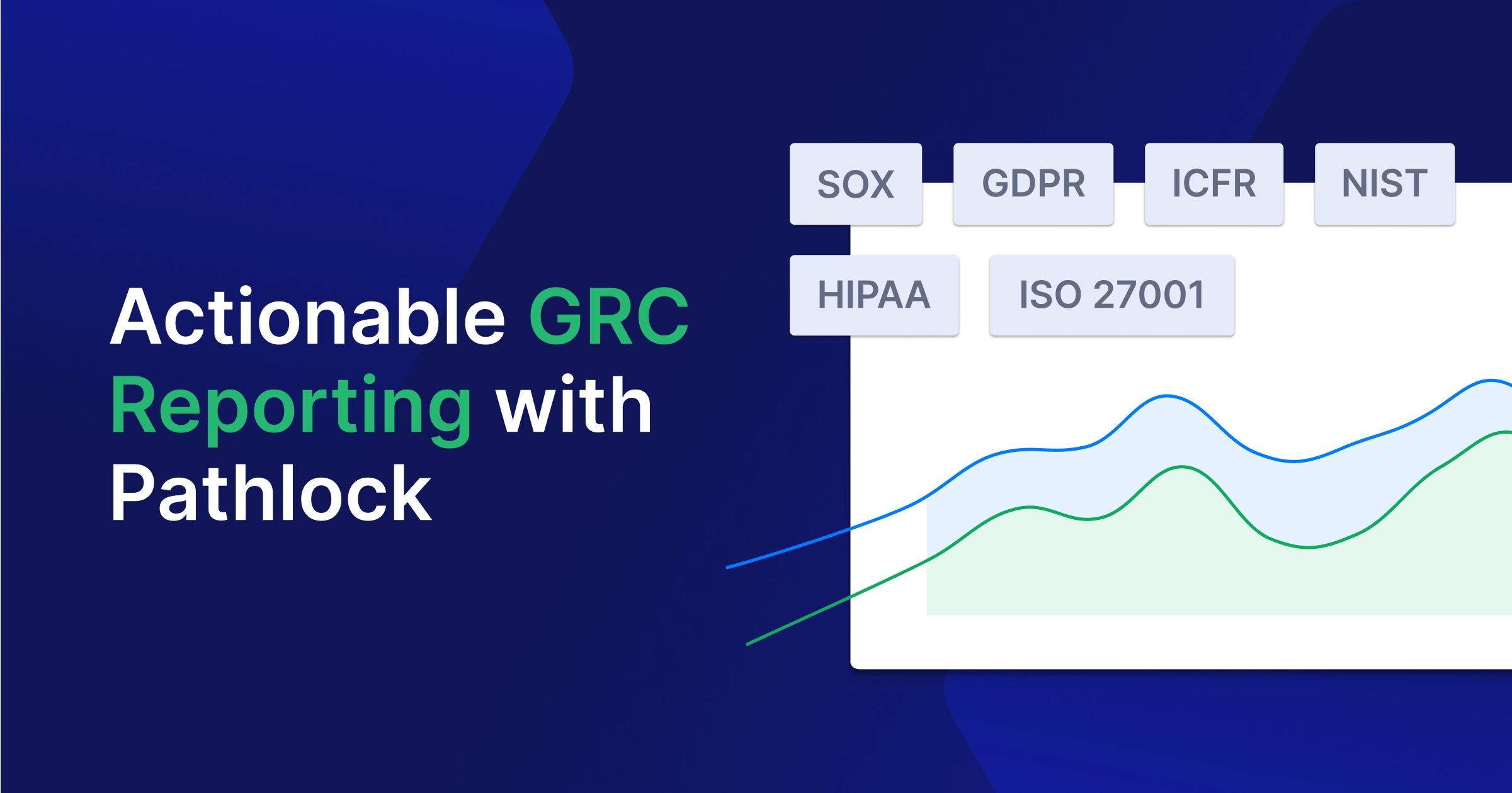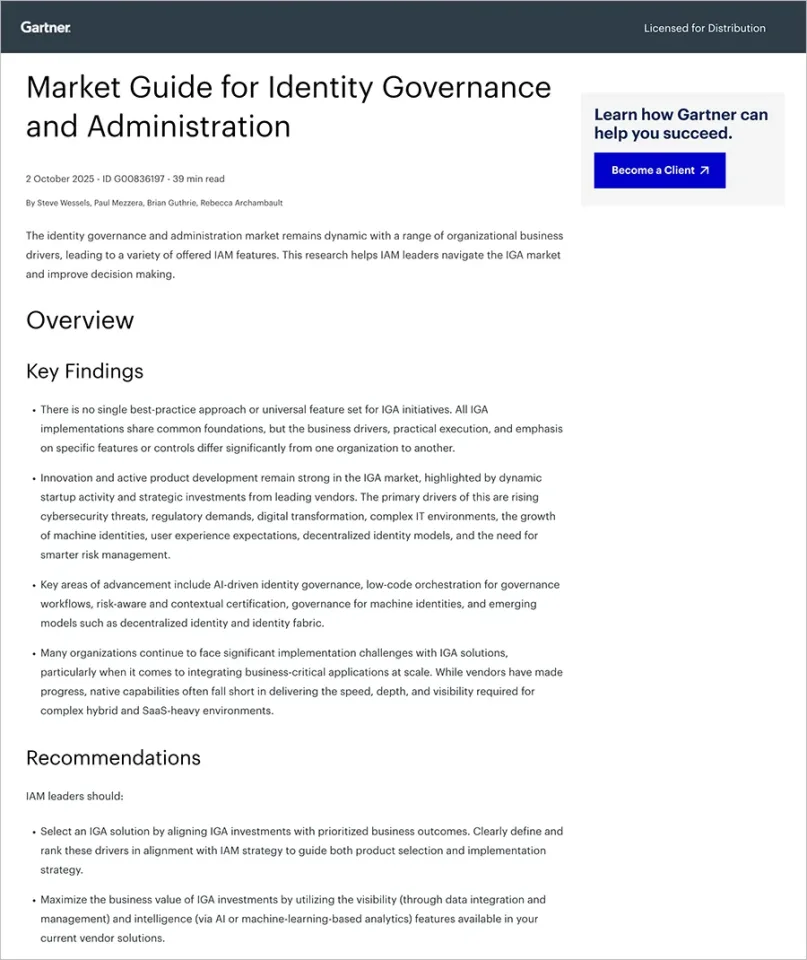Microsoft vs. Okta: Background
Microsoft and Okta provide different identity management solutions, so they are a bit difficult to compare. Both Microsoft Azure AD and Okta provide identity and access management (IAM), but it is not always clear which components are included in IAM and whether each company provides a complete solution or only some of the components.
Microsoft offers its solution in a hybrid model – on-premises (the traditional Microsoft Active Directory) and in the cloud (Azure Active Directory), allowing for tight integration between them. This enables on-premise AD users to access cloud resources and vice versa. Azure AD is a broad tool covering a wide variety of resources while providing many of the features expected from IAM, including single sign-on (SSO), privileged access management (PAM), identity governance, and multi-factor authentication (MFA).
Learn more in our detailed guides about:
Okta offers a solution called Identity Cloud, which includes two products: Workforce Identity and Customer Identity. Workforce Identity is the solution that is comparable to Azure AD because it is focused on end-users and administrators (customer Identity is for developers). In comparison to Azure AD, Okta Workforce Identity is more cloud- and vendor-agnostic, and they promote using it in any environment and with any other services. It provides standard IAM tools, including user lifecycle management and MFA. Advanced capabilities include API protection and support for hybrid scenarios.
What is Azure Active Directory (Azure AD)?
Microsoft Azure AD is a cloud-based service that enables administrators to manage access privileges and end-user identities.
The service provides access management, identity protection, and a user directory. It also lets you use single sign-on (SSO) security to allow users to centralize authentication into applications.
You can use Azure AD to specify which data remains in the cloud and define the users, services, and applications allowed to access, use, or manage the data.
What is Okta?
Okta provides identity and management software products that help administrators secure and protect cloud applications and web services.
Okta offers a web-based single sign-on (SSO) application. Here are key use cases for Okta:
- Organizations can use Okta SSO to secure and manage user authentication into applications.
- Developers can employ Okta SSO to build identity controls into their web services, applications, and devices.
Azure AD vs. Okta: Authentication
Both Azure AD and Okta offer similar authentication tools but apply them using different mechanisms.
Azure AD uses a security token to separate servers and users completely. When users sign in, they receive a unique security token that can be verified via a strict trust system.
Related content: Read our guide to Azure AD Connect (coming soon)
Okta Identity Cloud uses a zero-trust protocol in which no users are treated as safe (not even administrators). At the slightest sign of unusual activity, automated locks are put in place, and the user’s identity is re-verified. However, it may provide more friction for users who are required to re-authenticate more frequently.
Azure AD vs Okta: Collaboration and Self-Service
Azure AD provides large-scale collaboration capabilities. For example, it allows a user to share their data with a third-party organization while protecting access among all parties in every one of the participating organizations.
Okta Identity Cloud lets users perform self-service onboarding, which reduces the load on administrators and provides a faster, more positive user experience. Its lifecycle management feature can provide instant access to new members based on predefined policies and automatically blocks users removed from the system on all endpoints.
Azure Active Directory vs. Okta: Pricing
Azure AD pricing plans include:
- Office 365 – most Office 365 enterprise plans provide Azure AD free with basic functionality, including company branding, device write-back, and guaranteed SLA.
- Premium P1 – adds advanced administration features, hybrid access to on-premise and cloud resources, dynamic groups, and self-service password reset for on-premise users.
- Premium P2 – adds Azure AD Identity Protection, which can detect and prevent identity-based attacks, and PIM for monitoring administrators and providing just-in-time (JIT) access.
Pricing details:
- Premium P1 costs $6/month/user
- Premium P2 costs $9/month/user
- No minimal commitment
Related content: Read our guide to Azure AD Premium (coming soon)
Okta Identity Cloud includes the following products, which are priced separately:
- SSO – includes Okta Integration Network, advanced threat detection, SSO for desktop and mobile access to the cloud, on-premise applications, and basic MFA.
- Adaptive SSO – adds contextual access management based on network, device, location, and risk score.
- MFA – includes possession factors, one-time passwords (OTPs), universal second factors (an open standard that uses physical USB security devices), push notifications, voice, and text messages.
- Adaptive MFA – adds authentication based on security context (location and travel patterns), network IPs, device characteristics, and risk scores.
Pricing details:
- Okta SSO costs $2/month/user. Upgrading to adaptive SSO increases the cost to $5/month/user.
- MFA costs $3/month/user. Upgrading to adaptive MFA increases the cost to $6/month/user.
- All products require a minimum commitment of $1,500 per year.
Azure Active Directory vs. Okta: Support Options
Azure AD provides the following support packages:
- Basic – provided free, enables users to create support tickets, and provides self-help resources and documentation.
- Developer – $29/month – email support during business hours with a response within 8 hours.
- Standard – $100/month – 24/7 support by phone and email with response times of 1-8 hours.
- Professional Direct – $1,000/month – 24/7 support by phone and email with response times of 1-4 hours.
Okta provides the following support plans:
- Basic – 24-hour response time for support requests by phone or email during business hours (Monday through Friday 09:00-21:00 EST). Also provides self-service resources, including a knowledge base, webinars, training, and community forums.
- Premier – guarantees a response to support requests within one hour 24/7/365, discount on live online training classes.
- Premier Access – adds access to a customer success manager with occasional video conferences.
- Premier Plus – adds a VIP support line and onsite meetings.
Pricing for support options is not publicly available.
Azure Active Directory with Pathlock
Pathlock is the leader in Access Governance for business-critical applications. Staying compliant with Sarbanes-Oxley is a critical business requirement, and Pathlock helps to automate the compliance process. As a MISA member, Pathlock can bring these capabilities to users of Azure Active Directory, with tight integration between the solutions.
Customers rely on Pathlock to streamline critical processes like fine-grained provisioning, separation of duties, and detailed user access reviews. With Pathlock’s out-of-the-box integration to Azure Active Directory, customers can enjoy the best of both worlds, including:
- Coverage for the leading business applications, with support for key applications like SAP, Oracle, Workday, Dynamics365, Salesforce, and more.
- Perform compliant provisioning at a transaction code or function level into both cloud and on-premise applications.
- Define Separation of Duties (SOD) rules, both within an application and across them, and enforce them to prevent access risks and stay compliant.
- Enrich User Access Reviews (UARs) with fine-grained entitlement details and usage about transactions performed with specific access combinations.
Interested to learn more about the winning combination of Pathlock and Azure Active Directory? Request a demo today to see the solution in action!



